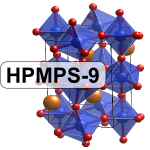Large sample volume 5000 ton multi-anvil presses have contributed to the exploration of deep Earth and planetary interiors, synthesis of ultra-hard and other novel materials, and serve as a sample complement to pressure and temperature regimes already attainable by diamond anvil cell experiments. However, no such facility exists in the Western Hemisphere. We are establishing an open user facility for the entire research community, with the unique capability of a 5000 ton multi-anvil and deformation press, HERA (High pressure Experimental Research Apparatus), supported by a host of extant co-located experimental and analytical laboratories and research staff.
We offer wide range of complementary and/or preparatory experimental options. Any required synthesis of materials or follow up experiments can be carried out controlled atmosphere furnaces, piston cylinders, multi-anvil, or experimental impact apparatus. Additionally, our division houses two machine shops that would facilitate any modification or custom work necessary for development of CETUS, one for general fabrication and one located specifically within our experimental facilities. We also have a general sample preparation laboratory, specifically for experimental samples, that allows users to quickly and easily prepare samples for ebeam analyses and more.
Our focus as contract staff is on serving the scientific needs of our users and collaborators. We are seeking community expert input on multiple aspects of this facility, such as experimental assembly design, module modifications, immediate projects, and future innovation initiatives. We've built a cooperative network of 12 (and growing) collaborating institutions, including the Consortium for Materials Properties Research in the Earth Sciences (COMPRES).
CETUS is a coordinated effort leveraging HERA with our extant experimental, analytical, and planetary process modelling instrumentation and expertise in order to create a comprehensive model of the origin and evolution of our solar system and beyond.

 PDF version
PDF version
